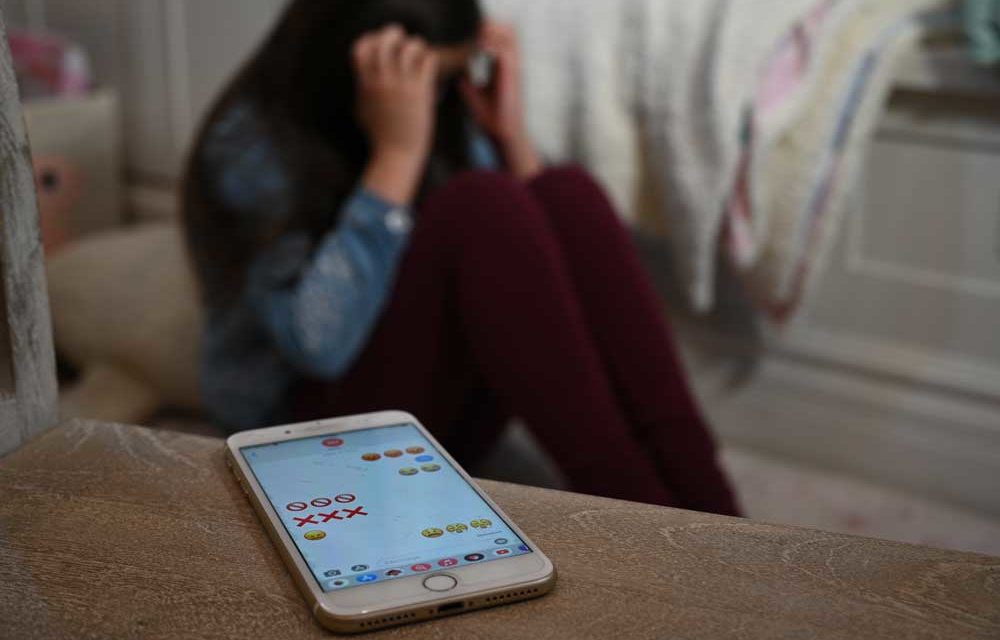While remote learning during the COVID-19 pandemic lowered reported instances of bullying, parents fear that, for some students, going back to school will mean going back to being bullied.
“Bullying is something we worry about, especially with the beginning of each new school year,” said Zury Bourque of her family of four in Cypress, Texas.
Now, 15 years after the inception of National Bullying Prevention Month in October, technology’s ever greater presence in children’s lives has given bullying a new outlet. With just a click, cyberbullies can taunt, harass, and threaten relentlessly, even reaching into the home via cellphone or computer. As a result, victims report feeling hopeless, isolated, and even suicidal.
What can parents do to protect their kids? Taking an interest in their children’s online world can make a difference, says the National Parent Teacher Association.
This interest does not necessarily require parents to become tech experts. Instead, the federal stopbullying.gov website advises parents to watch for subtle clues that something is wrong, such as their child becoming withdrawn, hiding their screen when others are nearby, or reacting emotionally to what’s happening on their device.
For Zury Bourque and her husband, Chris, that has meant being keenly aware of what “normal” looks like for their two boys, ages 12 and 10.
“Knowing my children’s moods is very important because I can then detect shifts or changes in their personalities that might signal something is going on,” said Chris.
Talking with kids openly — and often — helps too. “The more you talk to your children about bullying, the more comfortable they will be telling you if they see or experience it,” UNICEF says in its online tips for parents.
As their two daughters enter their teens, Houston parents Thiago and Auboni Cordolino have found that talking less and listening more works best. “We try to focus on being approachable and listening actively without reaction,” said Thiago.
Beyond talking, listening, and observing, parents shouldn’t be afraid to make and enforce rules for their kids’ online activities, experts say.
The Cordolinos’ girls are allowed to play online games, but they’re expected to turn off the live chat feature to limit interactions with strangers. “We reassure the girls that we trust them and respect their privacy, but they have to stay within the boundaries we’ve set,” said Auboni.
The Bourques have taken a similar approach. “We aren’t constantly over the boys’ shoulders, watching their every move, but we use a family app that lets us know how much time they’re spending on their tablets,” said Zury.
Both families cited the tips and reminders they’ve considered together with their kids, using free resources available on jw.org, the official website of Jehovah’s Witnesses.
One of the Bourques’ sons especially recommended one of the website’s short animated videos, “Beat a Bully Without Using Your Fists.”
“I learned that if you’re being bullied, you should call someone you can trust, like parents, principals, or counselors,” he said. “They can get in between the situation and make it stop.”










